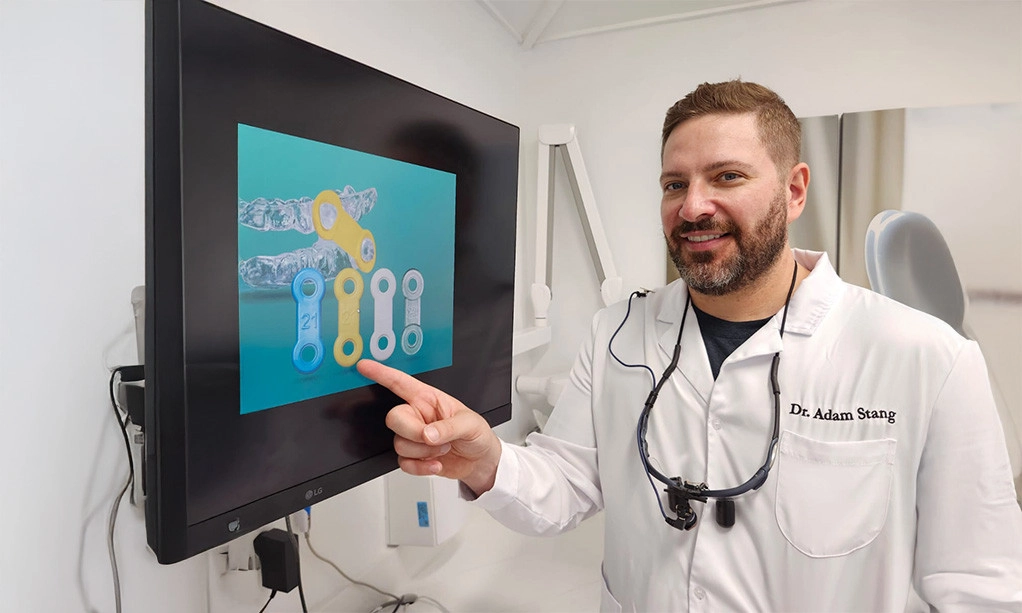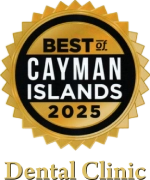
Sleep Apnea Appliance
For some people, snoring is more than just a noisy habit — it’s a sign of something deeper. Waking up tired, gasping for air, or feeling groggy despite a full night’s sleep may point to a condition called sleep apnea, where breathing repeatedly stops and starts during the night.
While CPAP machines are often the first thing people hear about, they’re not the only option. In many cases, a small oral appliance can make a big difference — and do so more comfortably.
How a Simple Device Makes a Big Change
The oral appliance looks a bit like a mouthguard, but it’s designed for a very different job. While you sleep, it gently holds your lower jaw slightly forward. That tiny adjustment creates more space in your airway, making it less likely to collapse or vibrate — which means less snoring, more oxygen, and fewer nighttime disruptions.
The appliance is custom-made to fit your bite, and most designs today are created using digital scans — no messy impressions, no guesswork. Once it’s made, it slips in easily at night and fits securely enough that many patients forget they’re even wearing it.
Not Everyone Gets Along With a CPAP
CPAP machines are considered the standard treatment for moderate to severe sleep apnea. But here’s the truth: a lot of people stop using them. The reasons vary — bulky masks, dry mouth, the sound of the machine, or the feeling of being tethered while trying to sleep.
That’s where oral appliances have gained traction. They may not be as aggressive as CPAP in terms of airflow, but they tend to work well in practice — mainly because patients are more likely to wear them regularly. And when it comes to treatment that works, consistency often matters more than power.
The Research Backs It Up
Plenty of clinical studies have shown that for patients with mild to moderate sleep apnea, oral appliances can be just as effective in reducing symptoms. They’ve also been shown to help lower nighttime blood pressure and improve daytime focus. For people who’ve struggled with CPAP or want something quieter and easier, this can be a solid alternative backed by data — not just comfort.
Who Might Benefit from an Oral Appliance?
If you're dealing with any of the following, it's worth having a conversation:
- Loud or frequent snoring that disrupts sleep
- Daytime tiredness or concentration issues
- Diagnosed mild or moderate sleep apnea
- Frustration with CPAP masks or tubing
- Travel or lifestyle needs that make a CPAP setup less practical
What the Process Looks Like
Getting fitted for a sleep appliance doesn’t involve wires, machines, or anything complicated.
It starts with a consultation. We’ll talk through your sleep history — how you’re sleeping now, what symptoms you’ve noticed, and what other treatments (if any) you’ve tried.
Then, we take a digital scan of your mouth to capture how your teeth align. That scan helps us create an appliance that fits precisely, without any discomfort or bulk. Once the appliance is ready, you’ll come in for a fitting, try it on, and we’ll make sure it feels right and functions well. From there, we stay in touch to track how things improve and whether any fine-tuning is needed.
A Small Adjustment That Can Change Everything
Sleep impacts everything — your mood, your focus, your blood pressure, even your immune system. If something as simple as a custom-fitted device can restore better breathing and deeper rest, it’s worth exploring.
No masks. No machines. Just a straightforward solution that fits in the palm of your hand — and fits into your routine without disruption.
Have questions? Not sure where to start?
We’re here to help you figure it out — no pressure, just honest guidance.

